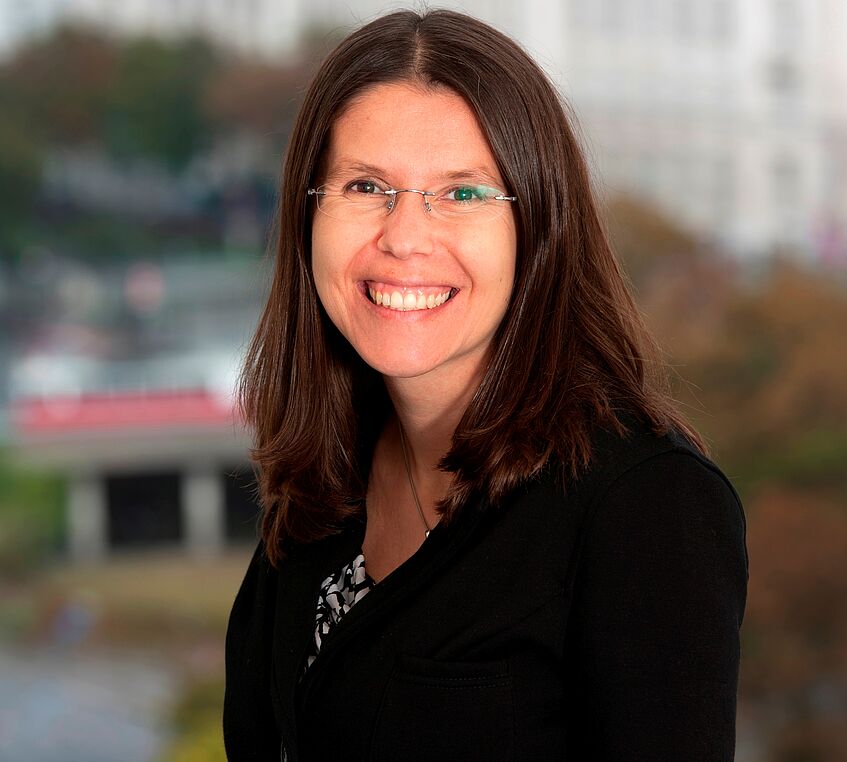
© Jan Dreer for IFK
Dr. Ljiljana Radonić
Postdoctoral Researcher at the Institute of Culture Studies and Theatre History, Austrian Academy of Sciences, Vienna
Ljiljana Radonić writes her postdoctoral thesis on the “World War II in Post-Communist Memorial Museums” at the Institute of Culture Studies and Theatre History, Austrian Academy of Sciences and teaches at the Department of Political Science at the University of Vienna. In 2017 she was visiting professor at the Center for Jewish Studies at the University of Graz, in 2015 visiting professor for critical theory of the society at Gießen University in Germany. She studied political science, philosophy and translation and wrote her doctoral thesis on “The War on Memory – Croatian Politics of the Past between Revisionism and European Standards” (Campus: Frankfurt 2010). Recent publications: Bogusław Dybaś/Irmgard Nöbauer/Ljiljana Radonić (ed.): Auschwitz im Kontext – Die ehemaligen Konzentrationslager im gegenwärtigen europäischen Gedächtnis, Frankfurt 2017; Post-communist invocation of Europe: memorial museums’ narratives and the Europeanization of memory, in: National Identities 2/2017; Ljiljana Radonić/Heidemarie Uhl (ed.): Gedächtnis im 21. Jahrhundert – Zur Neuverhandlung eines kulturwissenschaftlichen Leitbegriffs, Bielefeld 2016; Visualizing Perpetrators and Victims in Post-Communist Memorial Museums, in: Yad Vashem Studies 2/2016.
E-Mail: ljiljana.Radonic@oeaw.ac.at
Abstract
Post-Communist Memorial Museums from the “Invocation of Europe” to an Authoritarian Backlash
How do post-communist memorial museums dealing with the World War II display the end of interwar democracy, occupation, collaboration and the Holocaust? How did their permanent exhibitions change during EU accession talks? How do these museums reference trends coming from Holocaust memorial museums? One group stresses being part of Europe, copies the aesthetics of the USHMM and Yad Vashem and focuses on the individual victims. Another group demands from ‘Europe’ to acknowledge their suffering during the communist era. Narratives of Nazi occupation are used argue that communist crimes were worse. Yet, both kinds of museums refer to the archetypical aesthetics of Holocaust memorial museums – sometimes for narratives of collective victimhood. After the phase I call the “invocation of Europe” a national backlash is taking place first of all in Hungary and Poland – and contested museum projects are in the core of their memory politics. Fidesz wants a second Holocaust museum focusing on children and Hungarians who rescued Jews to outshine the Holocaust Memorial Center from 2004 which critically confronts Hungarian responsibility for the Holocaust. The Polish museum boom also shows a strong focus on Polish rescuers like at the huge museum in the village of Markowa. In contrast, Kaczyński attacked the Museum of the Second World War in Gdańsk for not showing “Polish truth”, but “Polish shame”.
Programme: Panel 8, Thursday, 6 September 2018, 17:30-19:00
Programme: Chair Panel 12, Friday, 7 September 2018, 13:00-14:30